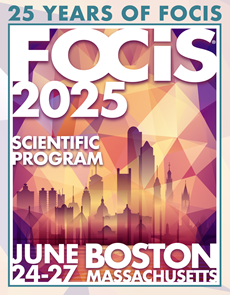Autoinflammatory Diseases
Session: Allergy - Mechanisms to Treatments
EVO756: A Promising Oral MRGPRX2 Inhibitor Showing Strong Preclinical and Phase 1 Results
Wednesday, June 25, 2025
1:25pm - 1:40pm East Coast USA Time
Location: Salons A-D
Jamie Harden – Evommune, Inc; Sreya Bagchi – Evommune, Inc; Stefan Frischbutter – Institute of Allergology, Charité – Universitätsmedizin Berlin, Corporate Member of Freie Universität Berlin and Humboldt-Universität zu Berlin; Jorg Scheffel – Institute of Allergology, Charité – Universitätsmedizin Berlin, Corporate Member of Freie Universität Berlin and Humboldt-Universität zu Berlin; Han Gao – Institute of Allergology, Charité – Universitätsmedizin Berlin, Corporate Member of Freie Universität Berlin and Humboldt-Universität zu Berlin; Nana Shi – Institute of Allergology, Charité – Universitätsmedizin Berlin, Corporate Member of Freie Universität Berlin and Humboldt-Universität zu Berlin; Alexandra Pavel – Evommune, Inc; Claudia Montlollor-Abalate – Evommune, Inc; Andrea Kim – Evommune, Inc; Janice Drew – Evommune, Inc; Polina Bukshpun – Evommune, Inc; Kelsey Santisteban – Evommune, Inc; Dan Burge – Evommune, Inc; Sarbjit Saini – Division of Allergy and Immunology – Johns Hopkins University, School of Medicine; Jeegar Patel – Evommune, Inc
- JH
Jamie L. Harden, PhD
Director - Research
Evommune, Inc
Palo Alto, California, United States
Presenting Author(s)
Abstract Text: Mas-Related G-Protein Coupled Receptor X2 (MRGPRX2) is a versatile receptor predominantly found on mast cells and peripheral sensory neurons. It is a key player in FcεRI-independent mast cell degranulation and drives neurogenic inflammation linked to symptoms such as cough, pain, and itch. MRGPRX2’s activation by a wide array of ligands present during chronic inflammation underscores its significant role in tissue pathophysiology. Consequently, targeting MRGPRX2 offers a promising therapeutic strategy for chronic inflammatory diseases like chronic spontaneous urticaria, atopic dermatitis or asthma.
We introduce EVO756, a novel, oral small molecule inhibitor of MRGPRX2 with robust preclinical and clinical data. EVO756 effectively inhibits MRGPRX2-mediated responses in various models, including transfected CHO cells, LAD2 cells, human skin primary mast cells, and ex vivo skin explants. In a Phase 1, randomized, double-blind, placebo-controlled study, EVO756 demonstrated a well-tolerated safety profile and a pharmacokinetic profile that was proportional to the administered dose.
Its pharmacodynamic activity was evaluated through a skin challenge test using icatibant, a known MRGPRX2 ligand. Treatment with EVO756 resulted in statistically significant reductions in icatibant-induced wheal sizes compared to placebo, confirming strong target engagement.
These findings establish EVO756 as a well-tolerated, orally bioavailable inhibitor with the potential to modulate MRGPRX2-driven activation effectively. With promising results from preclinical and Phase 1 studies, EVO756 holds great potential as a treatment for diseases involving mast cells and neuro-inflammation. Further exploration is warranted to unlock its full clinical potential.
We introduce EVO756, a novel, oral small molecule inhibitor of MRGPRX2 with robust preclinical and clinical data. EVO756 effectively inhibits MRGPRX2-mediated responses in various models, including transfected CHO cells, LAD2 cells, human skin primary mast cells, and ex vivo skin explants. In a Phase 1, randomized, double-blind, placebo-controlled study, EVO756 demonstrated a well-tolerated safety profile and a pharmacokinetic profile that was proportional to the administered dose.
Its pharmacodynamic activity was evaluated through a skin challenge test using icatibant, a known MRGPRX2 ligand. Treatment with EVO756 resulted in statistically significant reductions in icatibant-induced wheal sizes compared to placebo, confirming strong target engagement.
These findings establish EVO756 as a well-tolerated, orally bioavailable inhibitor with the potential to modulate MRGPRX2-driven activation effectively. With promising results from preclinical and Phase 1 studies, EVO756 holds great potential as a treatment for diseases involving mast cells and neuro-inflammation. Further exploration is warranted to unlock its full clinical potential.

